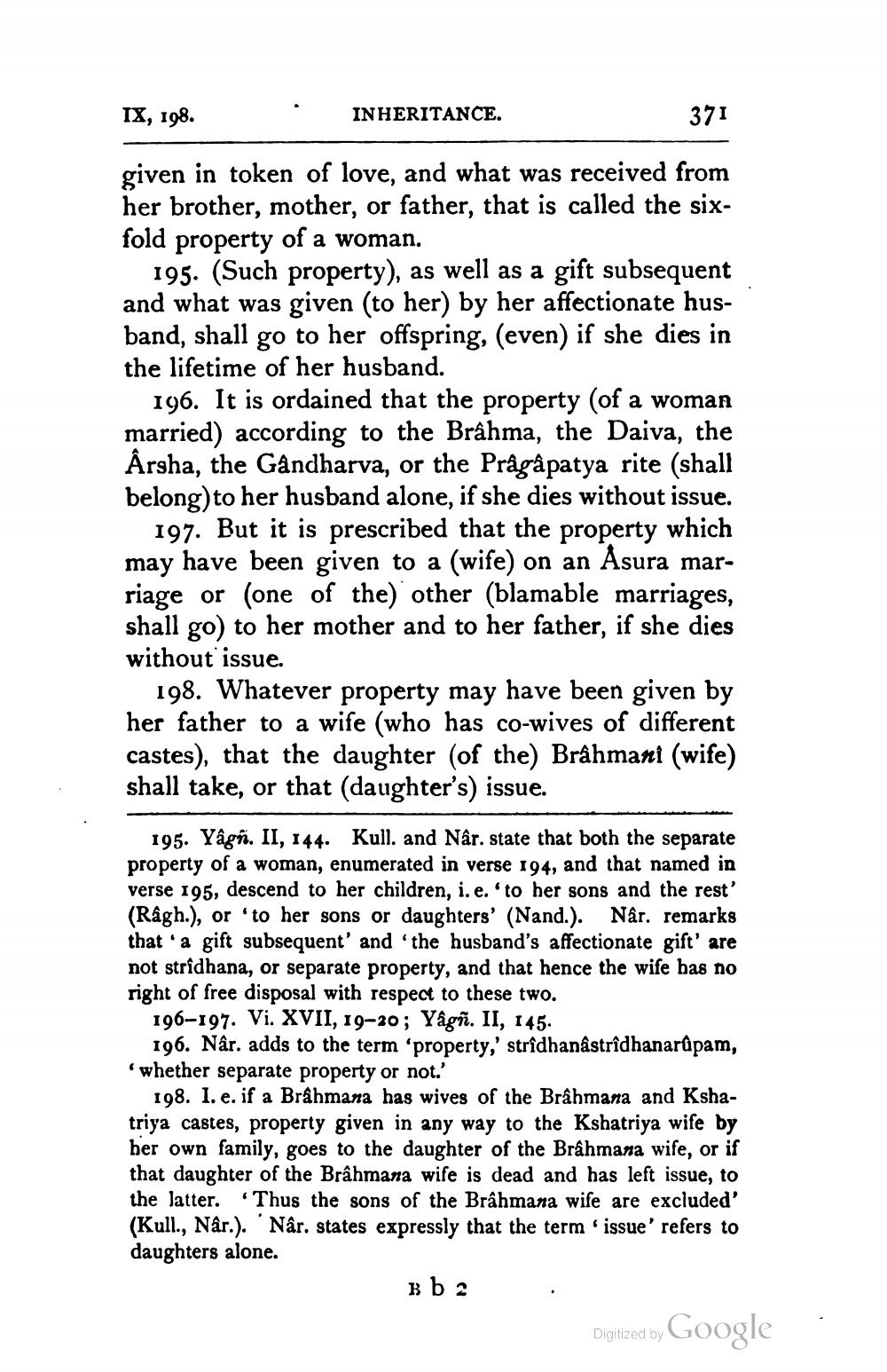________________
IX, 198.
INHERITANCE.
371
given in token of love, and what was received from her brother, mother, or father, that is called the sixfold property of a woman.
195. (Such property), as well as a gift subsequent and what was given (to her) by her affectionate husband, shall go to her offspring, (even) if she dies in the lifetime of her husband.
196. It is ordained that the property (of a woman married) according to the Brahma, the Daiva, the Arsha, the Gandharva, or the Prâgâpatya rite (shall belong) to her husband alone, if she dies without issue.
197. But it is prescribed that the property which may have been given to a (wife) on an Asura marriage or (one of the other (blamable marriages, shall go) to her mother and to her father, if she dies without issue.
198. Whatever property may have been given by her father to a wife (who has co-wives of different castes), that the daughter (of the) Brâhmani (wife) shall take, or that (daughter's) issue.
195. Yâgñ. II, 144. Kull. and När. state that both the separate property of a woman, enumerated in verse 194, and that named in verse 195, descend to her children, i.e. to her sons and the rest' (Ragh.), or 'to her sons or daughters' (Nand.). Når. remarks that 'a gift subsequent' and 'the husband's affectionate gift' are not strîdhana, or separate property, and that hence the wife has no right of free disposal with respect to these two.
196-197. Vi. XVII, 19-20; Yågñ. II, 145. 196. Nár. adds to the term 'property,' strîdhanastrîdhanarûpam, whether separate property or not.
108. I. e. if a Brâhmana has wives of the Brahmana and Kshatriya castes, property given in any way to the Kshatriya wife by her own family, goes to the daughter of the Brahmana wife, or if that daughter of the Brâhmana wife is dead and has left issue, to the latter. Thus the sons of the Brahmana wife are excluded' (Kull., Når.). Når. states expressly that the term 'issue' refers to daughters alone.
Bb2
Digitized by Google




